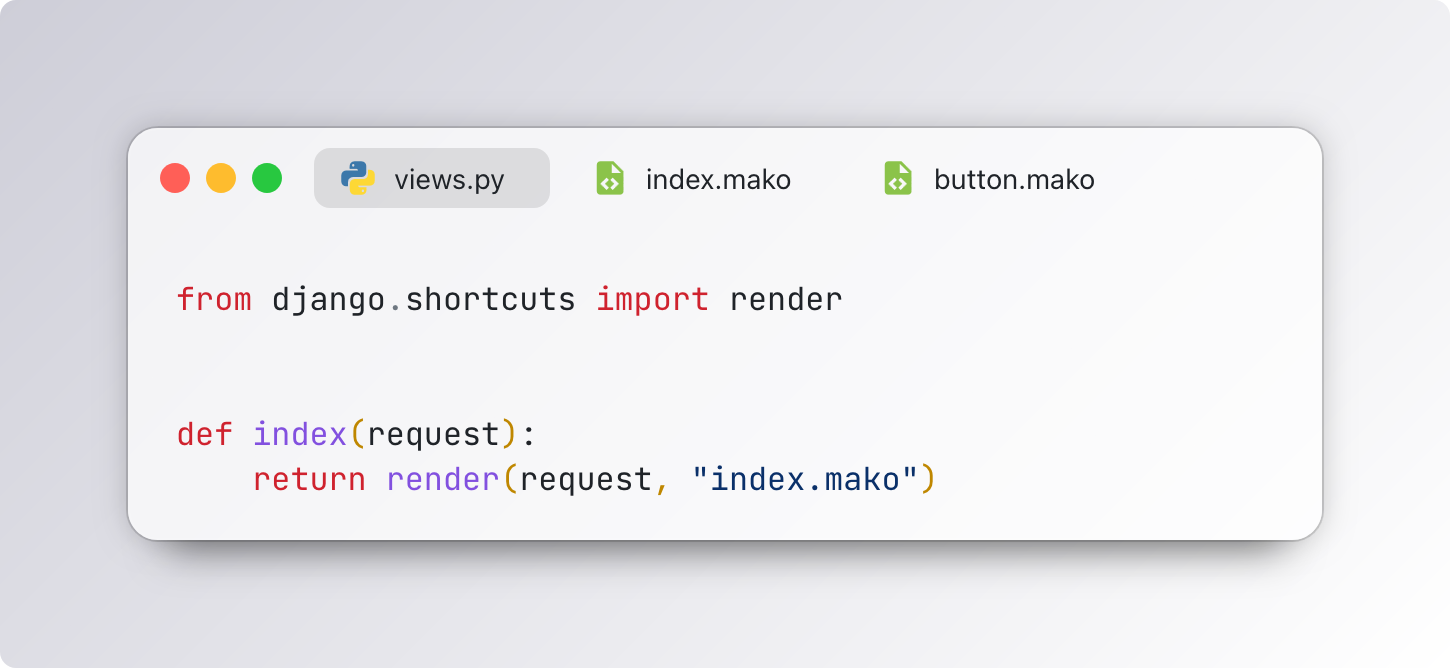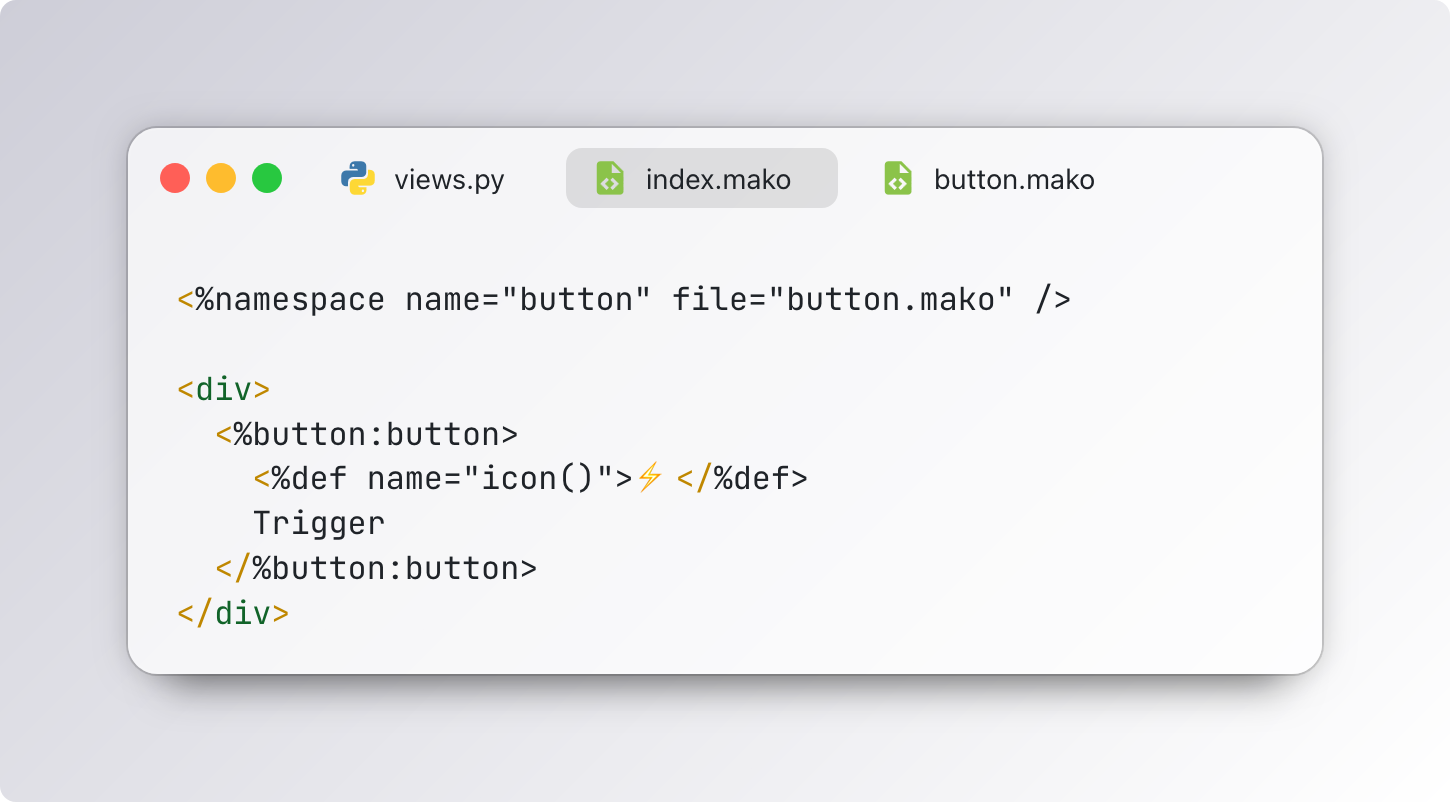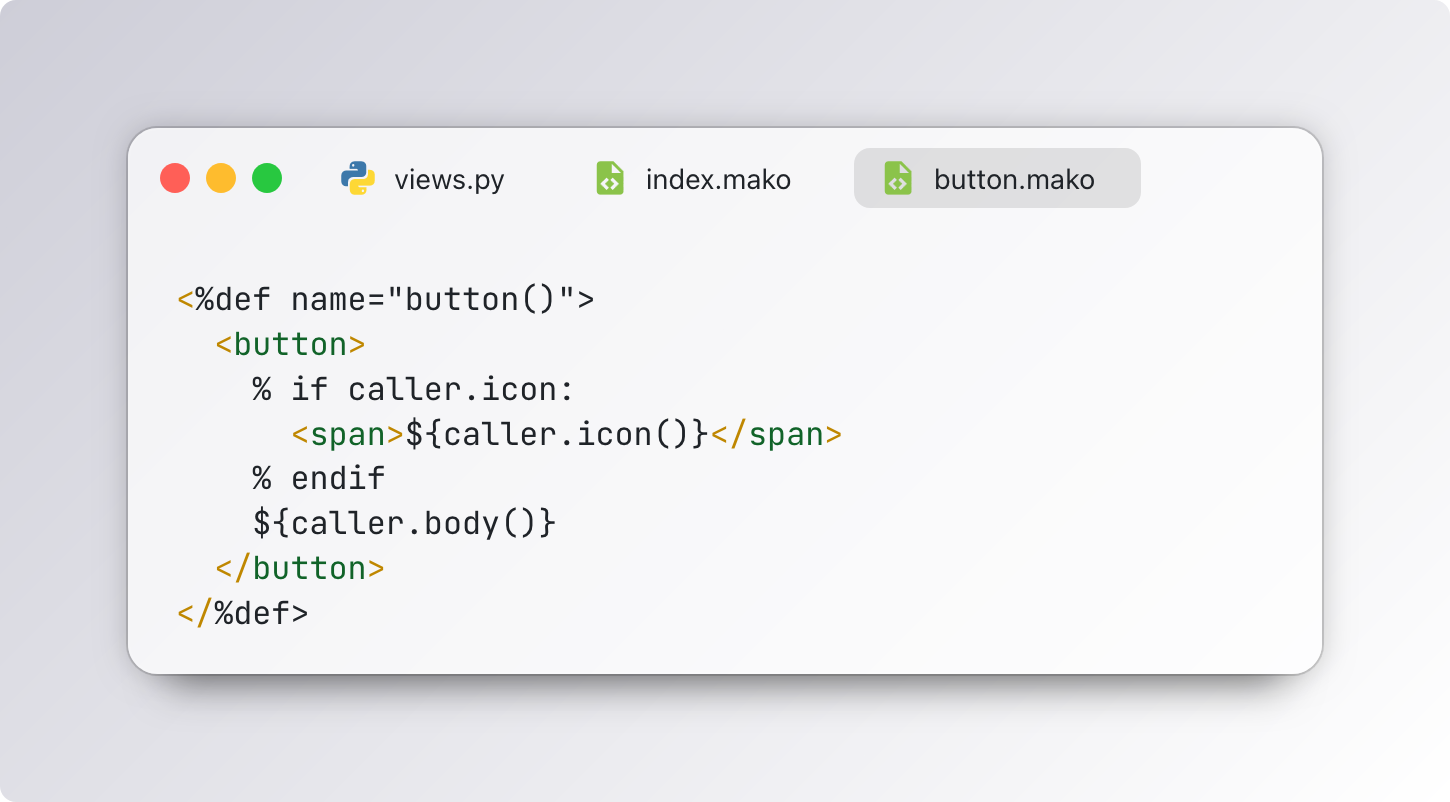Django's template system is famously rock solid
Uncategorized
1
Posts
1
Posters
14
Views
-
Django's template system is famously rock solid.
Mako supports a component-oriented approach, similar to React.
Mako for Django: A template backend that brings them together.Features:
- Auto-discovery for app templates
- Context processors work out of the box
- Detailed error reporting via Django's debug page⭐ Source & examples: https://github.com/ertgl/mako-for-django
-
 undefined instance-fosstodon.org@relay.fedi.buzz shared this topic on
undefined instance-fosstodon.org@relay.fedi.buzz shared this topic on



